
Iran's recent elections indicate the vitality of the Islamic Republic. Further, the results offer opportunities for fresh international diplomacy to resolve issues.
Can Washington adjust to the new Iranian situation with realistic policy?
The President-elect Hassan Rouhani is a highly educated and able man with extensive experience in government. Although some point to his role in nuclear issues, he is an expert on global strategic affairs and has broad understanding of international relations.
Rouhani is a lawyer and, as a result of his deep knowledge of and expertise in Islamic law, holds the respected Shia rank of "Mujtahid." He also holds MPhil and PhD degrees from Glasgow Caledonian University in Scotland.
In the US, there are powerful forces whose continuing objective is to poison US-Iran relations.
So far, these forces, which are backed by the pro-Israel lobby, have dominated US policy. But in recent years, influential voices have spoken out recommending substantial change in US policy.
Among such groups is the "Iran Project," which is composed of a number of veteran US diplomats and officials. The project released a report in April on "Strategic Options for Iran" recommending Washington to engage more actively with Tehran.
The election results in Iran seem to offer an excellent opportunity for a renewed US diplomacy toward Iran.
The US commercial and diplomatic relations with Iran began in the early 19th century. Critics of US post-World-War-II policy toward Iran fault Washington for the 1953 intervention which caused the downfall of the popular president, Mohammad Mossadegh.
Mossadegh and the Iranian parliament nationalized the oil industry including the holdings of British Petroleum, causing London to seek help from Washington.
The deal that was struck called for a coup against Mossadegh and the republican form of government and for the restoration of the Shah's monarchy so as to protect Western access to Iranian oil at favorable prices.
Supporters of the 1979 Iranian Revolution took this historical experience into account. But there is a broader and deeper historical context relating to the long-term decline of the corrupt and incompetent Qajar dynasty, symbolized by the 1890 Tobacco Revolt against British imperialism and domestic misrule.
Those who seek to undermine any US relations with Iran play the democracy card. But this is merely a cynical form of political warfare. Constitutions and political systems naturally vary around the world as does the definition of democracy. Aristotle recognized this 2,000 years ago.
The elections in Iran produced a turnout of over 70 percent of the vote. In the US, on the other hand, turnout in 2012 was about 57 percent and this was lower than 2008 and 2004. Iranian voter turnout was also higher than Israeli turnout.
The Constitution of the Islamic Republic is unique and includes such elements as the Guardian Council. Observers of the elections in Iran said the constitutional and the electoral processes were strictly followed and they said Rouhani fairly obtained the majority of votes during the first round in a free election.
Washington has an opportunity for change in its Iran policy. But there are obstacles.
One key obstacle is the influence of the neoconservative policy network, which is linked to the pro-Israel lobby. For several decades, this network has sought to undermine US-Iran relations. Neoconservatives support the terrorist Mujahedin-e-Khalq organization and support a restoration of the former dynasty.
Israel's regional policy, which neoconservatives advance, first organized on the basis of cooperation with non-Arab Turkey and Iran to contain the Arab states.
Today, coordinating with Washington, Israel's regional policy is organized around cooperation with Saudi Arabia and its Sunni allies against Iran, against Syria, and against Hezbollah.
To protect its long-range national interests, Washington must drop its current anti-Shia policy and conduct balanced regional diplomacy with Turkey, the Arab states, Israel, and Iran. The elections in Iran offer an opening.
The author is an educator and former senior professional staff member of the Senate Committee on Foreign Relations. opinion@globaltimes.com.cn
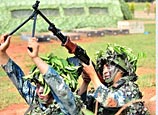
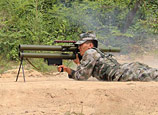


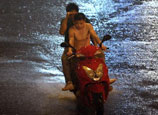


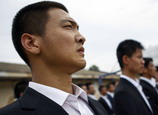
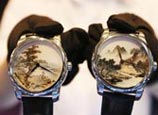







 Chengguan, sometimes criticized for brutal force burdened by reputation
Chengguan, sometimes criticized for brutal force burdened by reputation


![]()
